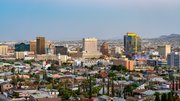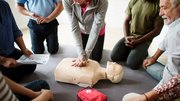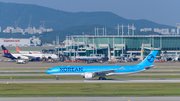Article
Self-service security program aims to shorten wait time at airport
An "express lane" approach to airline security has a number of benefits - and some stern critics.
Since 9/11, much has been made of the balance between security and convenience - and how an improvement in one often results in a decrease in the other. Now the Transportation Security Administration has devised the Registered Traveler program to address both sides of the dilemma. Travelers using the program will pay ahead of time for background checks, enabling them to go through fast airport security lanes by using cards with biometric data at kiosks.
But the proposed program is not without controversy.
Congress created the Transportation Security Administration (TSA) in 2001 by passing the Aviation and Transportation Security Act in response to the 9/11 terrorist attacks. TSA took over security in U.S. airports in 2002.
Five airports took part in the Registered Traveler Pilot Program in the summer of 2004. TSA has pronounced the program a success. By June 20, 2006 it plans to begin screening of participants. Media reports about which specific airports will be involved have been speculative, according to TSA.
|
Registered Travel is only the latest in a succession of programs aimed at streamlining security. CAPPS I and II (Computer Assisted Passenger Pre-Screening Systems) assigned passengers color-coded security risk scores using information from government and commercial databases. Those predecessors drew fire from critics, and Registered Travel is no exception.
Privacy worries
While some pundits fear that data collected by such a program might be used for purposes other than security, TSA spokesperson Lara Uselding counters that the program is "purely voluntary." Further, she stresses that TSA controls will check the possible abuses of the private sector.
"Any data kept by TSA or its contractors will be securely maintained according to the requirements of the Privacy Act and the Federal Information Security Management Act," she said. "All uses and measures employed to safeguard registered traveler applicant and enrollee information will be clearly detailed in a privacy impact assessment for these pilots."
Although some critics regard the use of biometric data, including fingerprints and eye scans, as a peculiarly intimate invasion of privacy, Uselding takes the opposite view. "The smart card," she said, "will store the biometric data as templates. They ensure the participants' privacy if an individual's card is stolen."
A question of need
Although TSA hopes to have Registered Travel up and running by the summer of 2006, the identities of the airports involved, which may number as many as 20, have not been determined. If too few airports sign on, the future of the program could be in jeopardy.
Rande Swann, public relations director of Louisville Regional Airport Authority, is "excited about it," but she is quick to qualify. "I didn't say we're in favor of it. I said we are if it is crafted correctly." That means taking account of the varying needs of individual airports.
Regardless of how airport officials view Registered Travel, the program is designed to be market-driven. Is there sufficient consumer demand?

Laurie Bisig, manager of the group department at International Tours and Cruises in Louisville, believes that almost all the interest will come from corporate travelers and salespeople, who travel frequently. "For the person who's just traveling once or twice a year, (Registered Travel) won't make that much difference," she said.
But the program might make a considerable difference to frequent travelers like Dr. Robin Newstadt, a physician whose travels include medical conventions, tennis tournaments her son competes in, and visits with family on several continents. She often drives to avoid airport hassles.
Would she fly more often if Registered Travel lessened those hassles? "Absolutely!" she said. "If the program were there, I would definitely take advantage of it."
Making matters worse?
Some pundits have made the point that Registered Travel would create a "security backdoor" that terrorists themselves could hope to sign onto. And the fact that the program is, as Uselding said, "market-driven" bothers those who worry that profit creates an incentive independent of security to sign on as many card-holders as possible.
Uselding disagrees. "Security is and will continue to be our number one priority." She emphasized that TSA, not the private companies, will conduct the background checks. And, to foil terrorists that might seek to exploit the system, an element of unpredictability will be included. Random checks will occur even in the express lines, and will include such things as shoe removal.













